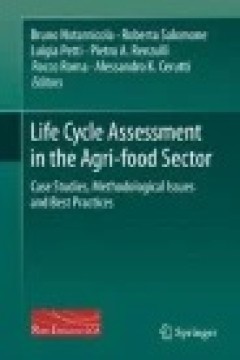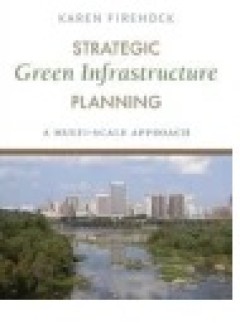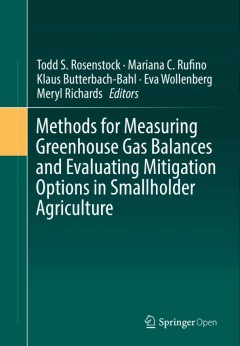Filter by

Micro-Behavioral Economics of Global Warming
This book presents a foundation for studying the micro-behavioral economics of global warming. The author develops an empirical model, named the Geographically-scaled Micro econometric model of Adapting Portfolios (G-MAP) in response to climatic changes and risks. The G-MAP model is applied to observed decisions of agricultural and natural resource enterprises in Sub-Saharan Africa and South Am…
- Edition
- 1
- ISBN/ISSN
- 978-3-319-15945-4
- Collation
- IX, 102
- Series Title
- Advances in Global Change Research
- Call Number
- -

Handbook of Climate Change Adaptation
The Handbook of Climate Change Adaptation addresses the scientific, social, political and cultural aspects of climate change in an integrated and coherent way. The multi-volume reference focuses on one of the key aspects of climate change: adaptation and how to handle its impacts on physical, biotic and human systems, analyzing the social and normative scientific concerns and presenting the too…
- Edition
- -
- ISBN/ISSN
- 978-3-642-38669-5
- Collation
- XL, 2198
- Series Title
- -
- Call Number
- 320 HAN

Life Cycle Assessment in the Agri-food Sector: Case Studies, Methodological I…
The book presents an overview of the International practices and state-of-the-art of LCA studies in the agri-food sector, both in terms of adopted methodologies and application to particular products; the final purpose is to characterise and put order within the methodological issues connected to some important agri-food products (wine, olive oil, cereals and derived products, meat and fruit) a…
- Edition
- -
- ISBN/ISSN
- 978-3-319-11940-3
- Collation
- -
- Series Title
- -
- Call Number
- -

Strategic Green Infrastructure Planning
A practical guide to creating effective plans and then implementing them, Strategic Green Infrastructure Planning presents a six-step process developed by the Green Infrastructure Center in Charlottesville, Virginia. Each step, from setting goals to implementing opportunities, can be applied to a variety of scenarios, customizable to the reader's target geographical location. Chapters draw on d…
- Edition
- -
- ISBN/ISSN
- 978-1-61091-693-6
- Collation
- -
- Series Title
- -
- Call Number
- -

Methods for Measuring Greenhouse Gas Balances and Evaluating Mitigation Optio…
This book provides standards and guidelines for quantifying greenhouse gas emissions and removals in smallholder agricultural systems and comparing options for climate change mitigation based on emission reductions and livelihood trade-offs. Globally, agriculture is directly responsible for about 11% of annual greenhouse gas (GHG) emissions and induces an additional 17% through land use c…
- Edition
- 1
- ISBN/ISSN
- 978-3-319-29792-7
- Collation
- xv, 203
- Series Title
- -
- Call Number
- -
 Computer Science, Information & General Works
Computer Science, Information & General Works  Philosophy & Psychology
Philosophy & Psychology  Religion
Religion  Social Sciences
Social Sciences  Language
Language  Pure Science
Pure Science  Applied Sciences
Applied Sciences  Art & Recreation
Art & Recreation  Literature
Literature  History & Geography
History & Geography